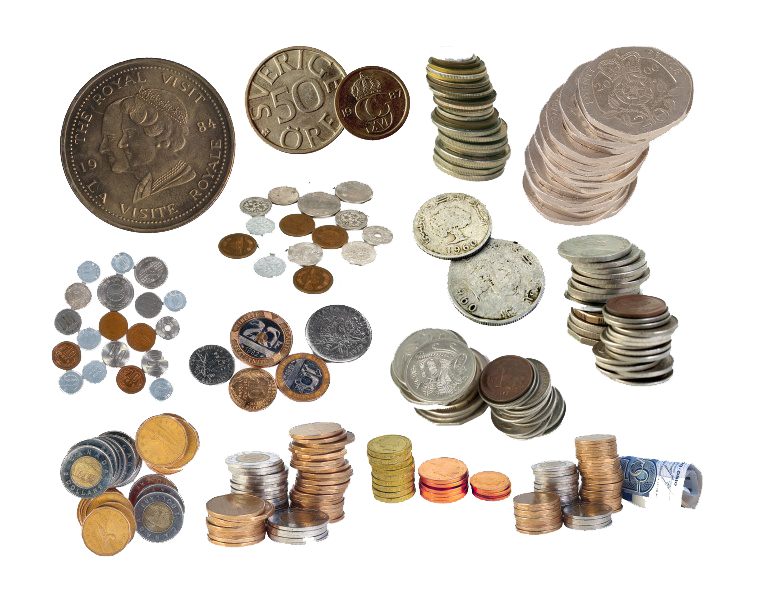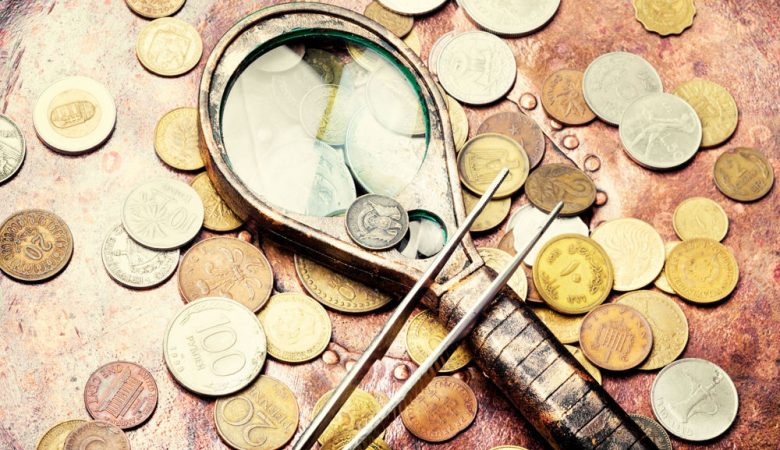Collection of coins:
The term “coin collection” is frequently used to describe a collection of coins. Numismatists are people who like collecting coins as a pastime. The study of money, including coins, tokens, paper money, and similar artifacts, with an emphasis on its historical, cultural, and monetary value is known as numismatics. Coin collectors frequently classify and arrange their collections according to criteria like place of origin, historical era, denomination, or unique characteristics.
What coins to be collecting?
The coins you decide to collect mostly depend on your own interests, financial situation, and collecting objectives. Numismatics offers a wide range of alternatives, allowing collectors to concentrate on particular themes, eras, locales, or coin kinds. Here are a few well-liked methods for coin collecting:
- By Geographic Region:
- Collect coins from a specific nation or area. You could concentrate on coins from your own nation, coins from historic civilizations, coins from a particular continent, or even coins from nations you’ve traveled to.
- By Time Period:
- Collect coins from a certain period in history, such as the ancient, medieval, modern, or a specific century. Some collectors concentrate on particular eras or years.
- By Denomination or Type:
- Collect particular coin types (such as commemorative, bullion, circulation, mistake, or proofs) or coin denominations (such as pennies, nickels, or dollars).
- By Metal Composition:
- Amass coinage made of one particular metal, such as nickel, copper, silver, or gold.
- Thematic Collections:
- Collect coins with a particular theme in mind, such as art, history, notable people, animals, or famous figures.
- Complete Sets or Series:
- Attempt to amass the whole set or series of coins produced by a certain nation, honoring a certain occasion, or sporting a certain design.
- Error Coins:
- Collect coins that have printing flaws, manufacturing inconsistencies, or other flaws since these might be valuable to collectors.
- Commemorative Coins:
- Collect coins that were produced to honor significant occasions, anniversaries, or historical persons. These frequently have distinctive patterns and small mintages.
- Ancient Coins:
- Collect coins from historic civilizations to gain insight into their history and culture.
- World Coins vs. U.S. Coins:
- Choose if you want to concentrate on collecting coins from different countries or if you wish to collect only American coins.
- Personal Connection:
- Collect coins according on your personal interests, such as the year you were born, memorable years in your life, or coins related to your passions or hobbies.
Finding a subject or method that speaks to you personally is ultimately the most crucial component of coin collecting. To expand your expertise and meet other coin collectors, do some research, join communities, and go to coin shows. Start with your interests, and your collection will develop organically over time.

How can I start a coin collection?
Starting a coin collection can be a fun and enlightening pastime. You can start your coin collection by following these steps:
- Educate Yourself:
- Study numismatics, the study of coins. To learn the fundamentals of coin collecting, such as coin kinds, grading, history, and terminology, read books, articles, or internet resources.
- Set a Budget:
- Establish your investment threshold for your coin collection. Setting a budget can help you make informed selections because coin collecting can range from reasonably priced to quite expensive.
- Define Your Collecting Goals:
- Depending on your interests and financial situation, choose the coin types you want to collect. Do you have a certain nation, era, religion, or subject in mind? Adjust your concentration.
- Start Small:
- Start by gathering coins you can easily acquire, such as those from your own nation or those that are already in use. To begin building your collection, you can also start with coin lots or sets.
- Visit Local Coin Shops and Shows:
- To view a range of coins, go to coin stores, go to coin shows, or browse internet markets. Speaking with other coin collectors and dealers can open up a wealth of knowledge and chances to buy coins for your collection.
- Join a Coin Collecting Club:
- Consider joining a club or forum for coin collectors in your area or online. Engage in conversation with seasoned collectors, take part in debates, and learn more about the hobby.
- Handle Coins Carefully:
- Use clean hands to handle coins and avoid touching the faces and edges excessively. If required, put on cotton gloves to protect the coins from oils and grime.
- Organize Your Collection:
- Create a method to catalog and arrange your coins. To keep track of your purchases, make a journal or online spreadsheet that includes information like the date of purchase, the denomination, the condition, and the purchase amount.
- Understand Grading:
- Learn about coin grading, which evaluates a coin’s condition. To assess the grade of your coins, become familiar with grading scales like the Sheldon scale.
- Preserve Your Coins:
- To avoid degradation or damage, keep your coins in the appropriate containers or holders. Keep them away from direct sunlight in a cool, dry location.
- Network with Collectors:
- Attend meetings, workshops, or events hosted by neighborhood coin clubs. Making connections with other collectors can open up a world of knowledge and possibilities for swaps and purchases.
- Enjoy the Journey:
- Enjoy learning about coins and collecting them. Building a collection is a journey of discovery and admiration for history, art, and culture. Every coin has a story to tell.


A coin collecting is an endeavor that requires enthusiasm, knowledge, and exploration. Enjoy the hobby, take your time, and let your collection develop based on your experiences and interests.




